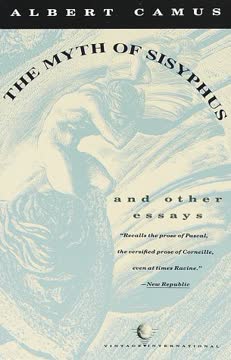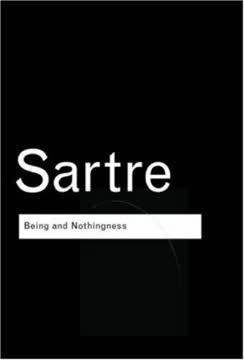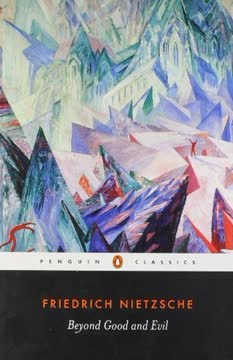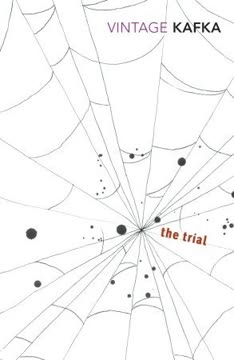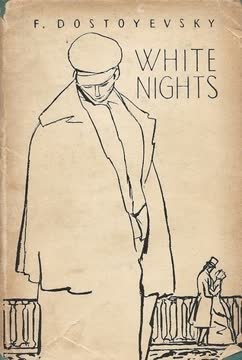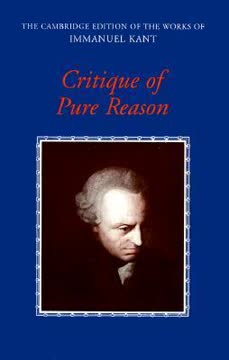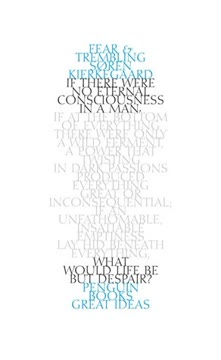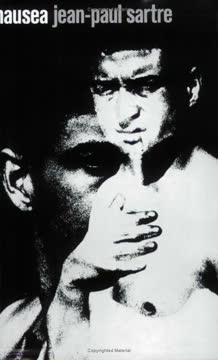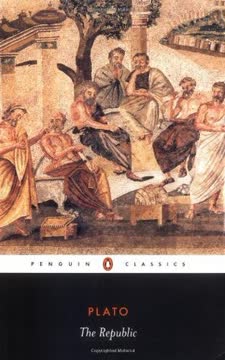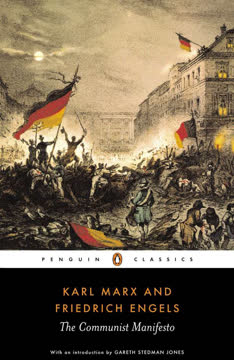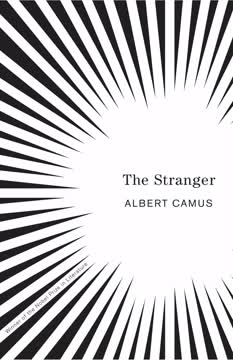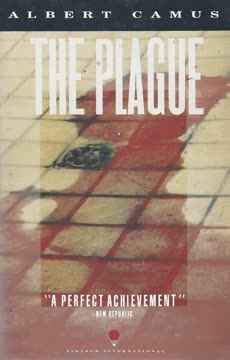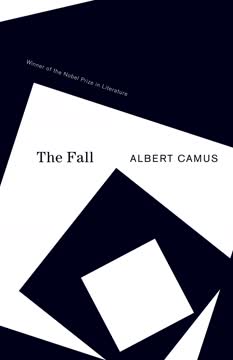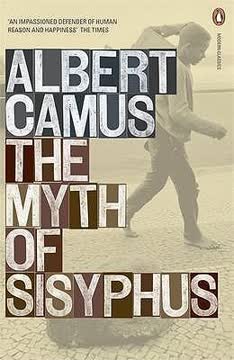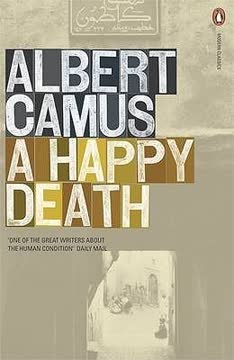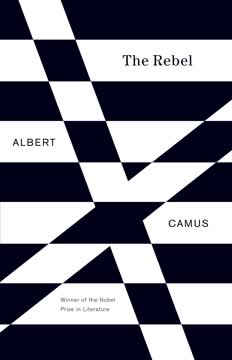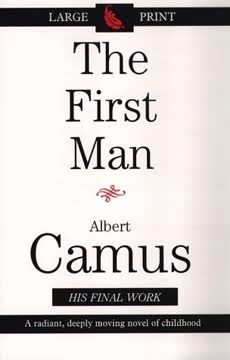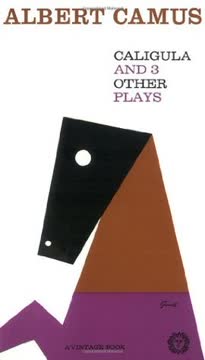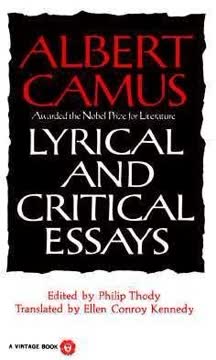Key Takeaways
1. The fundamental philosophical question is suicide.
There is but one truly serious philosophical problem, and that is suicide.
Judging life's worth. The most urgent question in philosophy is whether life is worth living, as this judgment precedes all action, including the definitive act of suicide. Unlike abstract metaphysical debates, this problem is felt in the heart and leads directly to action or inaction. Galileo, for instance, easily renounced a scientific truth when his life was threatened, demonstrating that some truths are not worth dying for, while the question of life's meaning is.
Individual confrontation. Suicide is not merely a social phenomenon but a deeply personal act prepared in the silence of the heart. It signifies a confession that life is too much or incomprehensible, a recognition of the ridiculousness of habit and the absence of profound reasons for living. This feeling often stems from a sudden awareness of the world's lack of meaning, leading to a sense of being an alien.
Direct connection. There is a direct connection between the feeling of absurdity – the divorce between man and his life – and the longing for death. The essay aims to clarify the exact degree to which suicide is a solution to the absurd, arguing that for a man who does not cheat, his belief in the absurdity of existence must dictate his conduct.
2. Absurdity is born from the clash of human longing and the world's silence.
The absurd is born of this confrontation between the human need and the unreasonable silence of the world.
Human desire for clarity. The mind's deepest desire is for unity, clarity, and familiarity, an appetite to reduce the world to human terms and understand its meaning. This nostalgia for the absolute is a fundamental impulse of the human drama, but it is met with the universe's resistance to being fully understood or unified.
World's irrationality. The world itself is not inherently reasonable; it is simply irrational. Science, despite its efforts, ultimately relies on hypotheses and metaphors, failing to provide a definitive, unifying explanation. The world remains dense, foreign, and irreducible to human understanding, negating our attempts to impose meaning upon it.
The confrontation. The absurd is not in man alone, nor in the world alone, but in their presence together – the confrontation between the human need for clarity and the world's unreasonable silence. This divorce is the only bond uniting them, a struggle that implies a total absence of hope, a continual rejection, and a conscious dissatisfaction.
3. Escaping the absurd through hope or reason is philosophical suicide.
I am taking the liberty at this point of calling the existential attitude philosophical suicide.
Negating one term. Philosophical suicide occurs when thought negates itself and attempts to transcend the absurd confrontation by eliminating one of its terms. This often involves a "leap" – either to religious faith (deifying the irrational) or to abstract reason (claiming the world is ultimately rational).
Forced hope. Existential philosophies, starting from the absurd, often suggest escape by deifying what crushes them, finding hope in what impoverishes them.
- Chestov: Accepts the absurd only to dispel it, seeing it as God, requiring a leap of faith beyond reason.
- Kierkegaard: Makes the absurd the criterion of the other world, sacrificing the intellect to embrace paradox and scandal as religious truth.
- Husserl: While initially describing phenomena without explaining, ultimately leaps to eternal essences and a metaphysic of consolation, restoring depth to experience.
Betraying lucidity. These leaps, whether religious or rational, betray the initial lucid awareness of the absurd confrontation. They mask the evidence, suppress the absurd by denying one of its terms, and offer a solution that was not experienced in the painful reality of the conflict. The real challenge is to remain on the "dizzying crest" of the absurd, not to escape it.
4. True integrity lies in living with the absurd through revolt and consciousness.
One of the only coherent philosophical positions is thus revolt.
Maintaining the tension. To remain faithful to the absurd, one must preserve the very thing that crushes them – the confrontation between human longing and the world's silence. This requires a constant awareness, ever revived and alert, of this divorce.
Conscious revolt. Revolt is the constant confrontation between man and his own obscurity, an insistence upon an impossible transparency. It is not aspiration or hope, but the certainty of a crushing fate without the resignation that ought to accompany it. This metaphysical revolt extends awareness to the whole of experience, keeping the absurd alive.
Refusing suicide. Living is keeping the absurd alive, which means contemplating it and refusing to turn away. Suicide, like the leap of faith, is an acceptance that settles the absurd and engulfs it in death. The absurd man, however, must drain everything to the bitter end, maintaining his tension and defiance through solitary effort.
5. Accepting the absurd grants freedom and intensifies life's experiences.
That privation of hope and future means an increase in man’s availability.
Freedom from illusion. The absurd cancels all chances of eternal freedom but restores and magnifies freedom of action in this life. By realizing there is no future or external meaning, the absurd man is released from the postulate of freedom based on illusion and the need to adapt to a predetermined purpose.
Increased availability. Without hope or concern for the future, the absurd man becomes available to the present moment and all experiences. He is freed from the constraints of conventional roles and expectations, no longer a slave to a liberty defined by external aims or eternal prospects.
Passion for life. This newfound freedom leads to a passionate embrace of life. The absurd man plunges into life with every excess, knowing that his fate is limited and that everything outside the fatality of death is liberty. This intense living is a consequence of his lucid awareness and revolt.
6. The absurd life values the quantity of experiences over their quality.
Supposing that living in this way were not honorable, then true propriety would command me to be dishonorable.
Indifference to value judgments. Belief in the absurd teaches the contrary of a scale of values based on meaning or preference. If life has no inherent meaning, then all experiences are indifferent in terms of their ultimate value. Value judgments are discarded in favor of factual judgments.
Maximizing experience. The rule becomes not living the best life, but living the most life – substituting the quantity of experiences for the quality. This doesn't depend on external circumstances but on one's consciousness of them. Being aware of one's life, revolt, and freedom to the maximum is living to the maximum.
Death as the limit. The sole obstacle to this maximization of experience is premature death. Nothing can make up for the sum of faces and centuries one would otherwise have traversed. The absurd and the extra life it involves depend not on will, but on death, making it a question of luck to live long enough to accumulate experiences.
7. Absurd creation is a sterile yet noble act of living doubly.
In this universe the work of art is then the sole chance of keeping his consciousness and of fixing its adventures.
Living doubly. Creation is the absurd joy par excellence, a way of living doubly by mimicking, repeating, and recreating reality. It is a vast mime under the mask of the absurd, allowing the creator to fix the adventures of his consciousness.
Sterile but lucid. An absurd work of art must be aware of its gratuitousness and not offer an escape or meaning for life. It is born of the intelligence's refusal to reason the concrete, illustrating thought's renouncing of its prestige and its resignation to working up appearances. It is a sterile illustration of a sterile condition.
Discipline and dignity. Despite its futility, creation is a powerful discipline and an ascesis. It requires daily effort, self-mastery, and a precise estimate of limits. It is staggering evidence of man's sole dignity: the dogged revolt against his condition and perseverance in an effort considered sterile.
8. Sisyphus embodies the absurd hero's triumph through conscious struggle.
The struggle itself toward the heights is enough to fill a man’s heart.
Futile labor. Sisyphus is condemned by the gods to ceaselessly roll a rock up a mountain, only for it to fall back down. This futile and hopeless labor is considered the most dreadful punishment, symbolizing the meaningless repetition of human existence.
Conscious awareness. Sisyphus is the absurd hero because he is conscious of his fate. During his descent back down the mountain, he thinks of his torment and knows the whole extent of his wretched condition. This lucidity, which constitutes his torture, also crowns his victory.
Triumph through scorn. Sisyphus is superior to his fate and stronger than his rock because he surmounts it with scorn. His silent joy is contained in the fact that his fate belongs to him; his rock is his thing. He concludes that all is well, making fate a human matter and silencing the idols. One must imagine Sisyphus happy.
9. Mediterranean clarity contrasts with European abstraction and historical obsession.
We have exiled beauty; the Greeks took up arms for her.
Mediterranean tangibility. Places like Algiers and Oran, bathed in Mediterranean sun and sea, offer a clarity and sensuality that contrast with the historical and abstract weight of European cities. They are places where the tangible prevails – stones, flesh, stars, truths the hand can touch.
European disproportion. Europe, in contrast, is the child of disproportion, pursuing totality and negating what it doesn't glorify, often beauty and nature. Placing history on the throne of God, it becomes obsessed with abstract reason, power, and future values, losing the Greek sense of limits and balance.
Beauty and limits. The Greeks understood justice and wisdom in terms of limits, balancing nature and history, beauty and virtue. Our era, having forgotten this, struggles for a total justice and power, leading to conflict and a desertion of the world's permanence. Fighting for freedom today is ultimately fighting for beauty and the recognition of human limits.
10. Wisdom is found in embracing the tangible present, not abstract eternities.
To live is not to resign oneself.
Rejecting abstract truths. The absurd man, informed by the Mediterranean climate, learns that there is no superhuman happiness or eternity outside the sweep of days. The "ideal" truths are incomprehensible; only paltry and essential belongings, relative truths, stir him.
Embracing the concrete. Wisdom lies in recovering a spiritual home where one feels the world's relationship through tangible things – sun, sea, flesh, stone. This is not resignation but a recovery of innocence and a refusal to cheat by hoping for another life or eluding the grandeur of this one.
Living without solace. Like the men of Algiers who live without myths or solace, putting all their possessions on this earth, the absurd man faces death without defense but also without having evaded anything. This bitter lesson teaches that the life of a happy man, fully lived in the present, is perhaps more tragic than suffering, but it is the way to not cheating.
Last updated:
FAQ
What is "The Myth of Sisyphus and Other Essays" by Albert Camus about?
- Exploration of the Absurd: The book centers on the philosophical concept of the "absurd," the conflict between humans' search for meaning and the silent, indifferent universe.
- Suicide as a Philosophical Problem: Camus begins by asking whether life is worth living, making the question of suicide the fundamental philosophical issue.
- Rejection of Suicide and Hope: Camus argues that even in a meaningless world, suicide is not a legitimate response, nor is the leap to religious hope.
- Invitation to Live and Create: The essays ultimately advocate for living with the absurd, embracing life, and creating meaning through revolt, freedom, and passion.
Why should I read "The Myth of Sisyphus and Other Essays" by Albert Camus?
- Foundational Existential Text: The book is a cornerstone of existential and absurdist philosophy, influencing literature, philosophy, and art.
- Addresses Universal Questions: Camus tackles questions about meaning, suffering, and how to live authentically in a world without clear purpose.
- Engaging Literary Style: The essays blend philosophical rigor with poetic and accessible prose, making complex ideas approachable.
- Relevance to Modern Life: The themes of alienation, rebellion, and the search for meaning resonate with contemporary existential concerns.
What are the key takeaways from "The Myth of Sisyphus and Other Essays"?
- Absurdity is Inescapable: Human beings naturally seek meaning, but the universe offers none, creating the "absurd."
- Suicide is Not the Answer: Camus argues that recognizing life's absurdity should not lead to suicide, but to a deeper engagement with life.
- Revolt, Freedom, Passion: The proper response to the absurd is to live with it consciously, embracing revolt, personal freedom, and passionate living.
- Creation as Defiance: Artistic and personal creation are ways to assert meaning in an indifferent world, embodying the absurd hero's stance.
What is Camus' definition of the "absurd" in "The Myth of Sisyphus"?
- Clash Between Desire and Reality: The absurd arises from the confrontation between humans' desire for clarity and meaning and the world's silence.
- Not in Man or World Alone: The absurd is not inherent in either the human mind or the universe, but in their relationship.
- A Starting Point, Not a Conclusion: Camus treats the absurd as the beginning of philosophical inquiry, not its end.
- Demands Lucidity: Living with the absurd requires constant awareness and rejection of false hope or resignation.
How does Camus address the problem of suicide in "The Myth of Sisyphus"?
- Suicide as a Philosophical Test: Camus calls suicide the only truly serious philosophical problem, as it confronts the value of life directly.
- Rejects Suicide as Solution: He argues that suicide is a form of escape, a refusal to face the absurd condition honestly.
- Advocates Revolt: The correct response is to live in defiance of the absurd, maintaining awareness and refusing resignation.
- Living Without Appeal: Camus suggests living "without appeal"—without recourse to hope, religion, or ultimate meaning.
What does Camus mean by "philosophical suicide" in "The Myth of Sisyphus"?
- Leap to Transcendence: Philosophical suicide refers to abandoning reason by making a leap to religious faith or metaphysical hope.
- Betrayal of the Absurd: Camus criticizes thinkers like Kierkegaard and Chestov for escaping the absurd by embracing irrational belief.
- Refusal to Accept Limits: Philosophical suicide is seen as a refusal to accept the limits of human understanding and the reality of the absurd.
- Integrity in Lucidity: Camus insists on remaining lucid and honest, resisting the temptation to resolve the absurd through faith or false certainty.
What is the significance of the Sisyphus myth in Camus' philosophy?
- Sisyphus as Absurd Hero: Sisyphus, condemned to endlessly roll a rock uphill, embodies the human struggle for meaning in a meaningless world.
- Consciousness as Victory: The tragedy of Sisyphus is his awareness, but this same consciousness allows him to scorn his fate and find meaning in the struggle.
- Happiness in Revolt: Camus concludes that "one must imagine Sisyphus happy," as fulfillment comes from embracing the struggle itself.
- Metaphor for Human Existence: The myth illustrates the repetitive, futile aspects of life, and the possibility of dignity and joy within them.
How does Camus describe the "absurd man" in "The Myth of Sisyphus"?
- Lives Without Appeal: The absurd man lives without hope for another life or ultimate meaning, accepting the limits of existence.
- Embraces Revolt and Freedom: He responds to the absurd by revolting against resignation and asserting personal freedom.
- Pursues Quantity of Experience: The absurd man seeks to live as fully as possible, valuing the richness and diversity of experience over any final purpose.
- Rejects Moral Absolutes: Without appeal to higher values, the absurd man creates his own ethics based on lucidity and authenticity.
What are the main concepts of revolt, freedom, and passion in Camus' method?
- Revolt: A constant, conscious refusal to submit to the absurd, maintaining awareness and defiance.
- Freedom: Recognition that, without hope or future, one is free to live authentically and without illusions.
- Passion: Commitment to living intensely, seeking the "most living" rather than the "best living."
- Foundation for Meaning: These concepts form the basis for a meaningful life within the limits of the absurd condition.
How does Camus view artistic and creative work in relation to the absurd?
- Creation as Revolt: Artistic creation is an act of revolt against the absurd, a way to assert meaning and individuality.
- No Ultimate Consolation: Art does not offer escape or final answers, but embodies the struggle and tension of the absurd.
- Emphasis on Process: The value lies in the act of creation itself, not in any lasting product or message.
- Art as Human Scale: True art, for Camus, remains on the human scale, reflecting the limits and diversity of experience.
How does Camus interpret Kafka and Dostoevsky in the context of the absurd?
- Kafka: Camus sees Kafka's works as embodying the absurd condition, but notes that Kafka ultimately introduces hope and the possibility of grace, which Camus views as a "leap."
- Dostoevsky: Dostoevsky's characters, especially Kirilov, dramatize the logic of the absurd, but Dostoevsky himself ultimately affirms faith and immortality, which Camus critiques as philosophical suicide.
- Tension Between Despair and Hope: Both authors illustrate the struggle with the absurd, but Camus distinguishes his own position by refusing any final reconciliation or transcendence.
- Artistic Value in Ambiguity: Camus admires the depth and ambiguity in their works, even as he disagrees with their ultimate conclusions.
What are the best quotes from "The Myth of Sisyphus and Other Essays" and what do they mean?
- "There is but one truly serious philosophical problem, and that is suicide." — Camus frames the question of life's value as the starting point for philosophy.
- "The absurd is born of this confrontation between the human need and the unreasonable silence of the world." — This defines the core of Camus' philosophy: the clash between our search for meaning and the world's indifference.
- "One must imagine Sisyphus happy." — Camus' famous conclusion, suggesting that fulfillment is found in embracing the struggle, not in achieving final meaning.
- "Revolt, freedom, and passion" — These are the three consequences Camus draws from the absurd, forming the basis for an authentic life.
- "Living is keeping the absurd alive." — The act of living itself, in full awareness of the absurd, is an act of defiance and meaning-making.
Review Summary
The Myth of Sisyphus is praised for its exploration of absurdism and life's meaning. Readers appreciate Camus' accessible writing style and thought-provoking ideas. The book challenges conventional notions of purpose and encourages embracing life's absurdity. Some find it dense and verbose, while others consider it life-changing. The titular essay is widely regarded as the strongest, with mixed opinions on the additional essays. Many readers connect deeply with Camus' philosophy, finding it relevant to modern existential struggles and a source of comfort in facing life's inherent meaninglessness.
Similar Books
Download PDF
Download EPUB
.epub digital book format is ideal for reading ebooks on phones, tablets, and e-readers.
